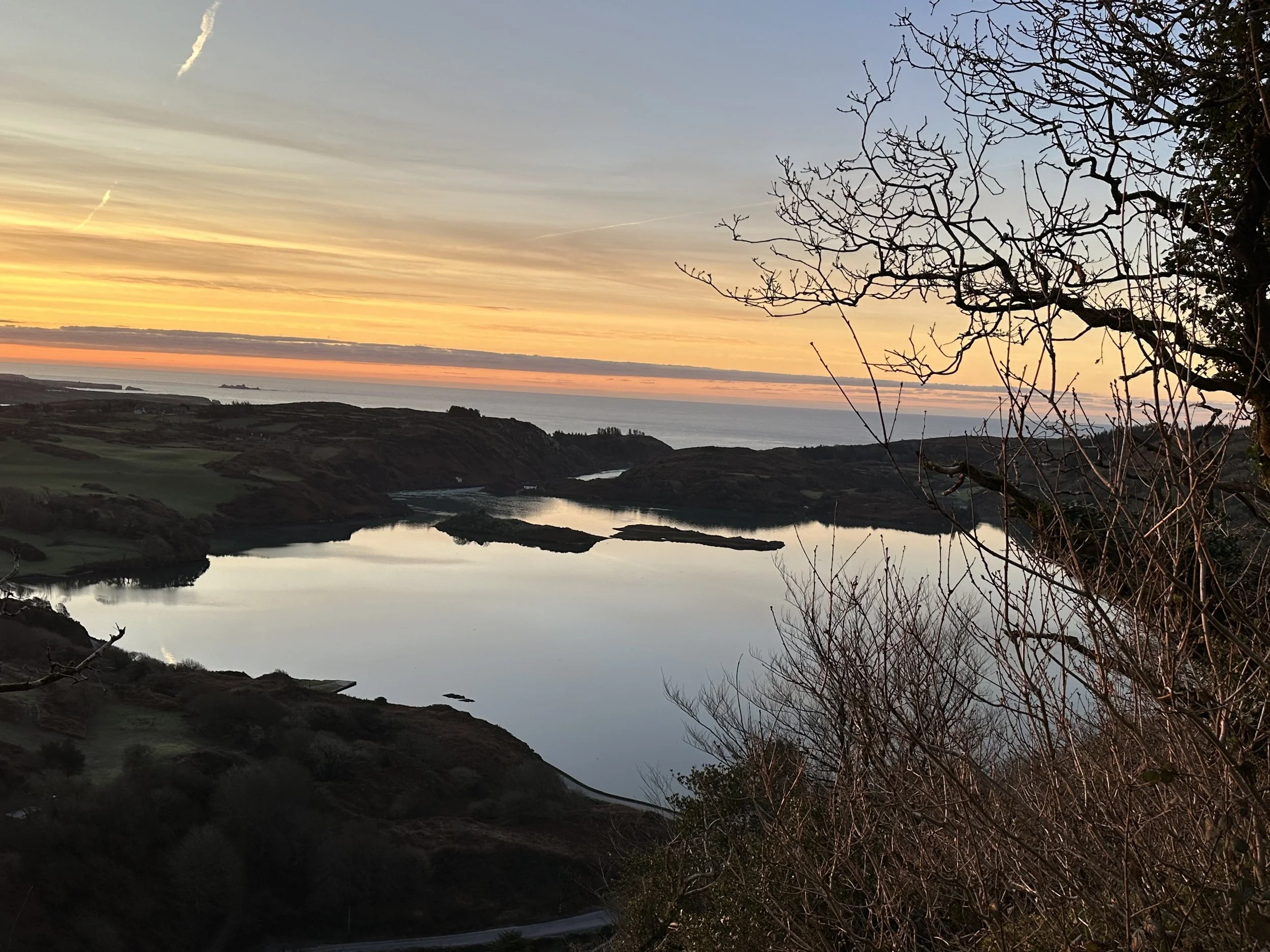Lough Hyne, West Cork
Lough Hyne, West Cork
There are very few places that capture the magic of West Cork and Lough Hyne, is definitly one of them. This is one of my to go places every time I visit Ireland and todays photo captures it on an early morning hike at sunrise. This lough is entirely landlocked, except for a narrow channel in one corner, the Rapids, where water races in or out according to the sea level outside. At first glance Lough Hyne looks like a tranquil freshwater lake, which it was most likely before the rise of the sea. A forest fringes the water's edge along the shore to the west and more trees creep up the slope of slopes of Lough Hyne Hill. . The lough has an area of about 150 acres and 170 feet deep at its deepest part. The water is salt water due to the little changes in the tide and the ecosystem is that of of the sea.The special lough is home to anamazing variety with some unique only to this lake. It has been the object of scientific study for well over than 100 years and in 1981 was designated Ireland’s first and only This was Irelands first Marine Nature Reserve and has been an area of marine study by many all over Europe over the last 45 years..

